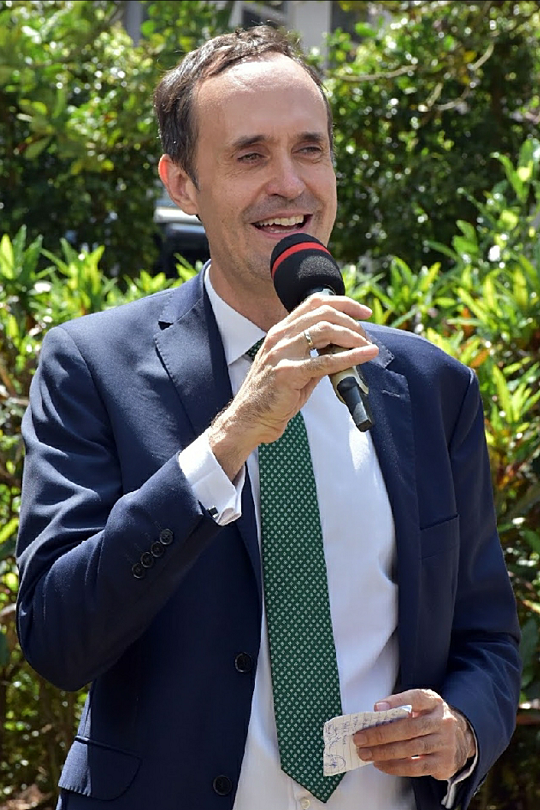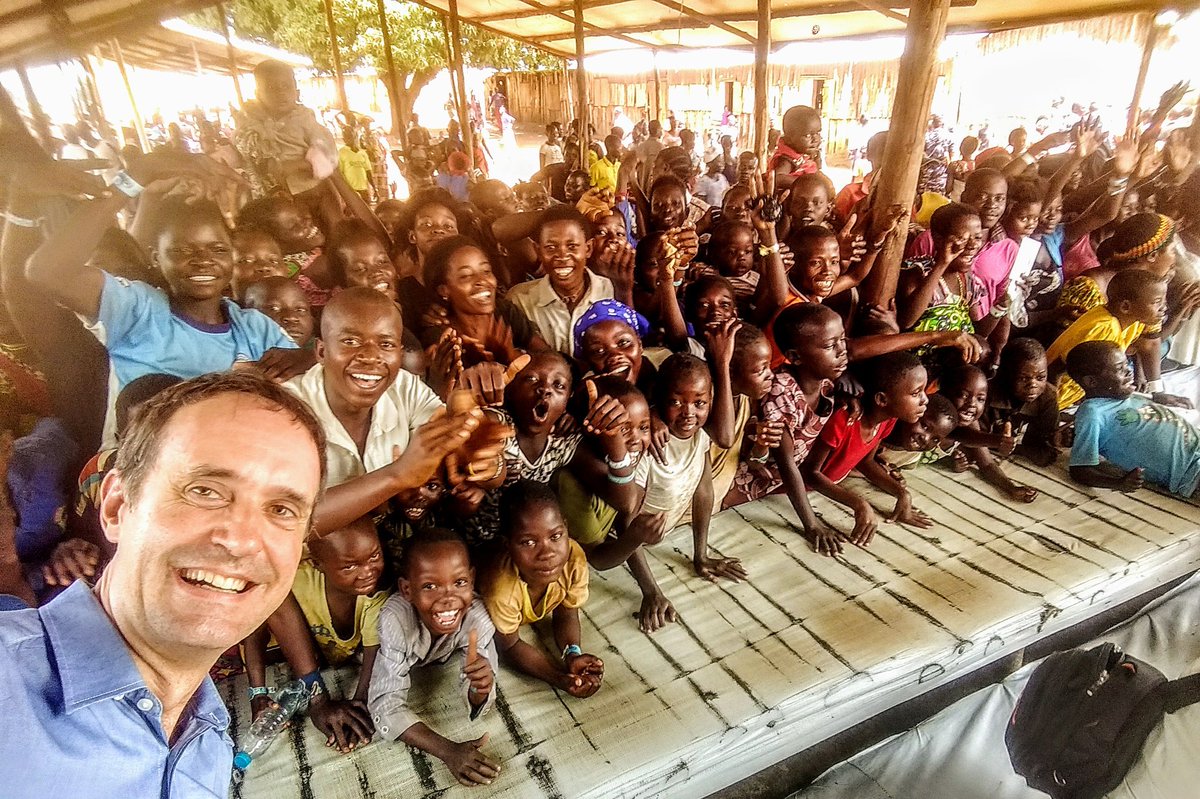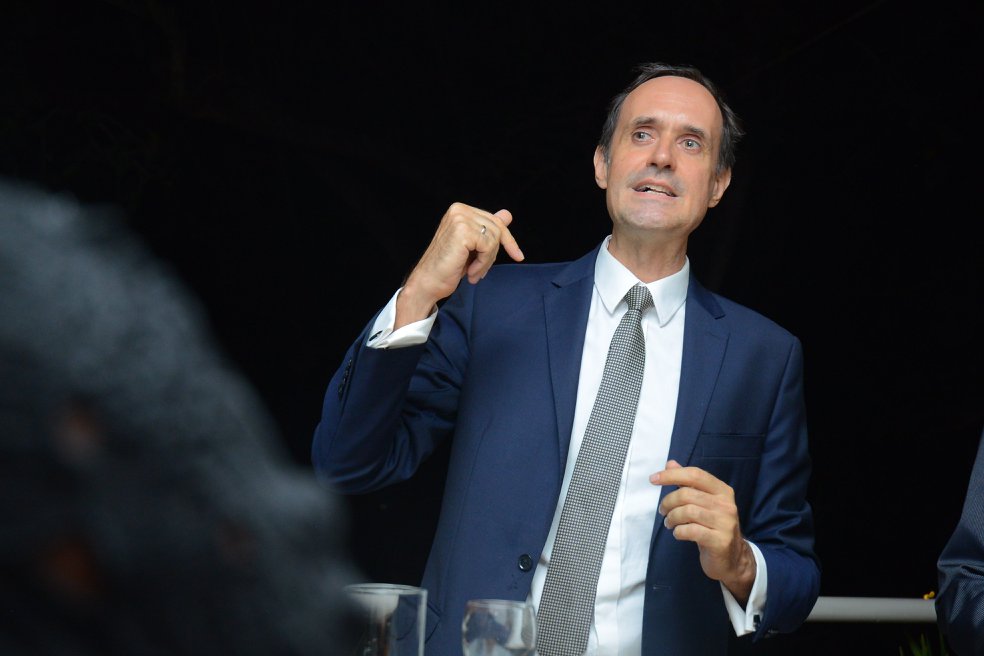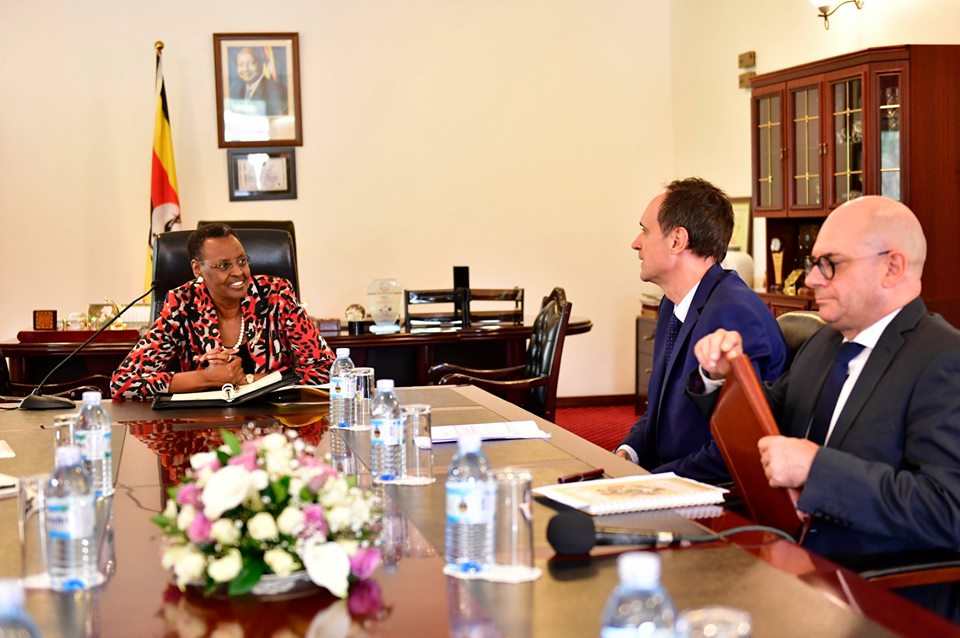
KAMPALA – Belgian Ambassador to Uganda, Hugo Verbist ends his diplomatic mission in Uganda this July. H.E Verbist on June 26 spoke to PML Daily Correspondent ABRAHAM MUTALYEBWA in a valedictory interview and the out-going Ambassador shared his Ugandan experience, achievements and more. Excerpts below:
QN: Your Excellency, you have been in Uganda close to four years. What in particular are you most proud of that has created impact?
ANS: The relationship between Uganda and Belgium did not start four years ago with my arrival but already dates back to Uganda’s independence. And from the time Belgium opened its Embassy in November 1998 in Kampala, as I look back now, the results are quite impressive; Uganda became one of the 14 development partner countries of Belgium worldwide, and actually the 5th most important one, with the emphasis on health and education and an ongoing programme of on average 16 million EUR (or 64 billion UGX) a year. We have also further increased our investments in the country as well as trade between our two countries, both ways. Being able to build on and further consolidate on the gains we have made in our bilateral relations is indeed something that I’m very proud of. As far as teachers’ training is concerned and skills development, we have engaged in the refurbishment of various training colleges, renovated buildings in an energy-friendly manner to create a conducive learning environment for both the students and teachers.
We have also worked on the curriculum and management of teachers. I believe human capital is the most important thing a nation has, much more than relying purely on the natural resources which are finite. However, none of the successes would have been possible without the support of relevant local government bodies. During my tenure, we have built a strong mutually beneficial relationship with the Ugandan government and with the population, civil society and other stakeholders in the private sector. I have also attached a lot of importance to the growth of our social media footprint as an embassy, as part of our accountability to the public but also to raise awareness of our activities. I believe it is important to also encourage cultural exchanges between the two countries and as such encouraged the organization of cultural exchanges and music concerts, which Ugandans could attend to enjoy themselves.
QN: The Belgian Embassy in Uganda had a key focus in vocational studies and skills development together with some other stakeholders. What success have you achieved so far?

ANS: We have been active in education since 2008, and I think it is important to concentrate on vocational training and skills development. The growth of the population is very high, and therefore there are a lot of young people who find it hard to get employment after university. On the other hand, there’s a budding private sector that often doesn’t find the skills required for their businesses whether it is in tourism, agriculture or any other industry. We think it is crucial to organise this skill training in collaboration with the private sector to make sure that the students get vocational training and are equipped to get the jobs available in the market.
We were active in the Rwenzori region initially but as you know we have now expanded our scope, via our Belgian Development Agency ENABEL and in conjunction with other partner countries, to many other regions in Uganda.
ENABEL, our implementing partner, is active in Karamoja, with support from Irish funding, and in northern Uganda in refugee settlements, with funding from the European Union. We continue to find new partners for the programs that we are developing and this way, we create a pool of partners which all think in the same direction. There has been a big change in the education sector as a result of these interventions.
QN: Uganda is one of the most hospitable countries in the world. What won’t you forget about the pearl of Africa that Belgians should know?
ANS: What I will carry with me is the friendliness of the people and their openness. I’m warmly welcomed wherever I go in Uganda, and not because I’m an Ambassador but even in the countryside where people don’t know me. The good sense of humour of Ugandans is also one of the things that I will certainly miss. In Belgium, Uganda is less known compared to other tourist destinations in the region for example; Rwanda, Kenya, Tanzania and South Africa among others. It is important to promote the country’s tourist destinations. Besides, the hospitality of the people, there are a lot of beautiful national parks, amazing wildlife, culture that is not known by people abroad.
After my departure, I will definitely talk about them as a goodwill Ambassador since they are worth visiting. I have been to Murchison falls, Lake Mburo, I’ve visited the chimps and also been to Jinja, and many other places. There is a lot one can do such as mountain climbing in Rwenzori, rafting in Jinja and so forth.
It is vital to preserve the tourist sites that are available, to strike a balance and to not neglect the impact of tourism to the economy and the environment. We need to combat climate change, and not just think about industrial development while forgetting its impact on future generations.
QN: Ever since you took up the diplomatic mission in Uganda, the image and Public Relations has been skyrocketing with increased awareness about your services. What has been your driving factor?
ANS: We believe that if Uganda develops, it will be beneficial for all of us to develop our trade relations in different sectors.
The driving factor of organising events is to create awareness about us and what we stand for. We created the Facebook page 2 years ago and recently we got the 7, 000th liker; who came to the embassy to meet me and my team and receive his goodies. This milestone created a lot of excitement as others first unliked and then liked the page again in an effort to get invited at the Embassy. It is of course all done in good spirit and at the end of the day we see this platform as a bridge between the government and the ordinary citizen.
QN: Last year, the mission celebrated 20 years under your stewardship. How was it?

ANS: We have organised the Belgian week three years in a row. However, last year it was indeed 20 years since we ‘opened shop’ in Kampala, and therefore extra special.
We created a slogan “sharing more than colours” since our two flags have the same colours. We had a full week with two Belgian chefs, Dries Cloet and Bart Denys, from the Hotel School TerDuinen in Koksijde in Belgium, who prepared some delicacies hand in hand with the Chefs of Serena Hotel. They were the driving force behind the Belgian culinary week at Serena.
We also organised the concert of the Belgian Indie-rock band the Intergalactic Lovers, featuring Ugandan musician Kas Kasozi. Throughout the week we also hosted a wide variety of events such a Kids Event Tales and a Puppet Show, a competition to reward innovative projects of young Ugandans, and our Development Day which was all about increasing the job opportunities for the Ugandan youth, but also about studying in Belgium, with some prominent alumni sharing their experiences.
QN: In French we say “Au- revoir ” meaning bye – bye. What is your step after this diplomatic mission?
ANS: It is a little difficult to say, I was assigned to Jamaica about 6 months ago but after that, there were also opportunities in the region that I have applied for. I would love to stay in the region to create continuity for at least the next four years. It would also give me the perfect excuse to come back here to visit.
QN: Uganda and Belgium share a lot in common and tremendous progress has been achieved in education, trade, tourism and hospitality sectors among others. Should we expect more?
ANS: We have been active since 1995 in development programs. The current five-year program concentrates on health and education. An extension towards agriculture is also planned, though we have to be a little patient since there have been elections in our country, so first we have to see a new government being formed, but as soon as it is done we shall engage with the government to look ahead at the next five-year program.
We shall still stay in education but hope to expand into sectors such as agriculture, since over 75 percent of the population is active in the sector, in order to improve their efficiency and livelihood. As far as tourism is concerned, we have a huge presence with Brussels Airlines (previously called Sabena) that flies every day to Entebbe. We also had a big trade mission 2 years ago with over 45 business owners that came here for the first time to discover the market and will be coming back in November; they hope to start viable commercial partnerships here.
QN: You have almost travelled the whole of Uganda during your tenure and been to the various regions such as Busoga, Acholi, Karamoja among other regions. What do you think we should work on to achieve steady growth and development?

ANS: First and foremost, education is vital and the government should put more funding in education because the population grows with an additional one million people almost every year. I do understand that the current government is trying to concentrate on infrastructure but I think two sectors have been under-funded in the previous years, tourism and agriculture, besides the social sectors of education and health.
There is indeed an untapped potential in tourism, promotion could be much better, but this has to be backed by funding in order to attract more tourists. The country has all the ingredients to sell it as a complete tourist package.
QN: For those intending to travel to Belgium, what should they always expect?
ANS: There is a lot to see although it is a small country. The good food, the medieval cities such as Bruges, the sea etc… Brussels, the capital, is a very multicultural city, with also a very vibrant African community in the ‘Matonge’ district of Brussels. There is lot of variety and therefore I certainly encourage people to visit and also study there.
We are in this regard creating a network of alumni who have studied in Belgium and some are important people with influential positions. They are really the best Ambassadors to help in promoting both countries.
QN: How does it feel to leave Uganda soon since you have been assigned a new role somewhere else?
ANS: I have lived here with my family for almost 4 years. Uganda is our home, so leaving is sad since you have to start afresh with new friends both professionally and in other fields, but that is what diplomacy is all about. We are usually referred to as luxury vagabonds though it is very enriching and I know I will be back soon.
QN: What are your final remarks?
ANS: I thank Ugandans for their hospitality that has really made me feel at home here in the pearl of Africa. I wish them the very best. This country has numerous opportunities in spite of its many challenges. I do believe in the long term potential of Uganda. Along the way, there are obstacles to be managed which may hinder business, such as the lack of press freedom or freedom of speech, bureaucracy and corruption have to be tackled.
I hope Uganda continues on the road of democracy, whereby any transition in the future should be peaceful without any turmoil.
I wish the very best for this country, I do believe that the enthusiasm of Uganda’s youths will turn around this nation’s fortunes.




